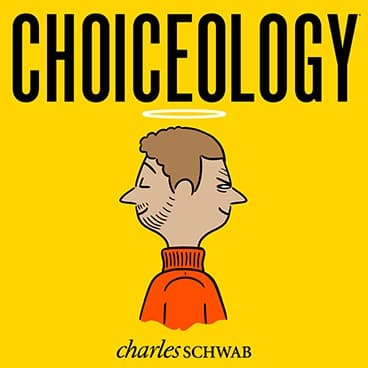The Charmer's Playbook: With Guests Wilfred Webster & Daniel Read
"Don't judge a book by its cover" is an old adage for a good reason.
Elegant book cover designs can create a positive impression and make you more likely to judge the writing quality more positively. But these traits—cover art and writing—are separate and distinct features of books.
So why do we allow the judgment of one trait to spill over to another unrelated trait?
In this episode of Choiceology with Katy Milkman, we look at a tendency to allow our judgments of one trait of a person (or product or company) to overly influence our judgments of another, unrelated trait of that same person or product or company.
The Traitors is a popular reality TV show, where contestants are assigned either the role of a "Faithful" or "Traitor." Those selected as Traitors eliminate Faithfuls each night and try to keep their identity a secret so the Faithfuls don't vote to eliminate them. By the end of the game, over $100,000 is up for grabs for those left standing. But how can the Faithfuls sniff out the Traitors and decide whom to banish? How do people form judgments of others and decide whom to trust? Wilfred Webster was a contestant on The Traitors, Season 1, on the BBC and played the game brilliantly, leveraging the way he appeared to other contestants to make it to the end.
Wilfred Webster is the runner up to The Traitors, Season 1, on the BBC. Before The Traitors, Will managed face-to-face fundraising for one of the largest charities in the U.K. Today, he's a content creator and fundraising consultant.
Next, Katy speaks with Daniel Read about his research on how our evaluations of a person or product or company on a single trait can spill over and excessively influence our judgments of that same person or product or company on another, separate trait. You can learn more in Daniel's recent paper titled "CSR Halo: The Gift that Keeps on Giving?"
Daniel Read is a professor of behavioral science at Warwick Business School at The University of Warwick in the U.K.
If you enjoy the show, please leave a rating or review on Apple Podcasts.
Learn more about behavioral finance.
Explore more topics
The comments, views, and opinions expressed in the presentation are those of the speakers and do not necessarily represent the views of Charles Schwab.
Data contained herein from third party providers is obtained from what are considered reliable source. However, its accuracy, completeness or reliability cannot be guaranteed and Charles Schwab & Co. expressly disclaims any liability, including incidental or consequential damages, arising from errors or omissions in this publication.
All corporate names and market data shown above are for illustrative purposes only and are not a recommendation, offer to sell, or a solicitation of an offer to buy any security. Supporting documentation for any claims or statistical information is available upon request.
Investing involves risk including loss of principal.
Because environmental, social and governance (ESG) strategies exclude some securities, ESG-focused products may not be able to take advantage of the same opportunities or market trends as products that do not use such strategies. Additionally, the criteria used to select companies for investment may result in investing in securities, industries or sectors that underperform the market as a whole.
The book How to Change: The Science of Getting from Where You Are to Where You Want to Be is not affiliated with, sponsored by, or endorsed by Charles Schwab & Co., Inc. (CS&Co.). Charles Schwab & Co., Inc. (CS&Co.) has not reviewed the book and makes no representations about its content.
Apple, the Apple logo, iPad, iPhone, and Apple Podcasts are trademarks of Apple Inc., registered in the U.S. and other countries. App Store is a service mark of Apple Inc.
Spotify and the Spotify logo are registered trademarks of Spotify AB.



